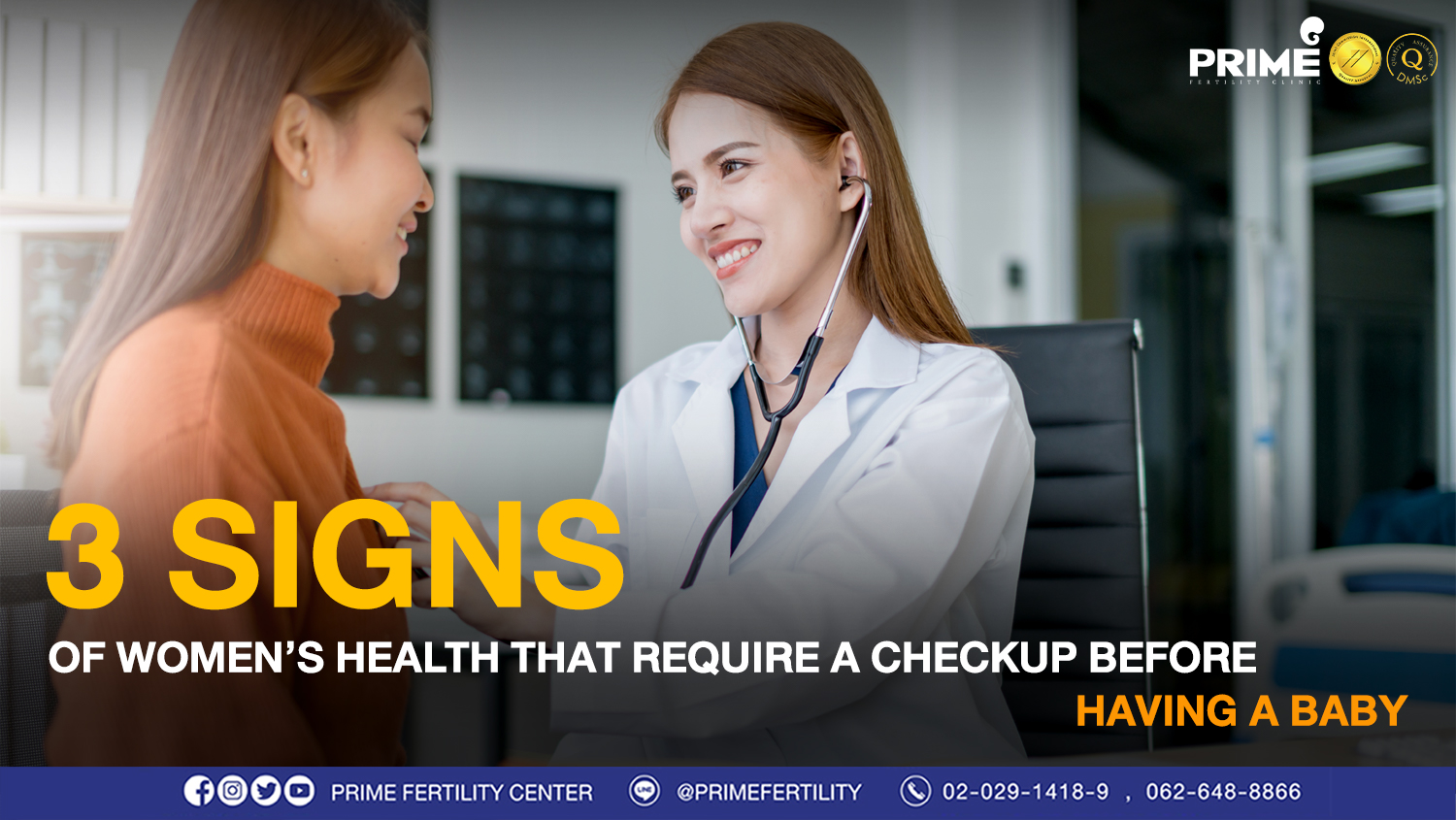Abnormalities of body can occur in various ways whether with or without symptoms.
Therefore, a health checkup is truly important! Today, #PrimeFertilityClinic will show you more about 3 signs of women’s health that require a checkup before having a baby. Let’s have a look.
- Abnormal bleeding such as bleeding after having sexual activity, bleeding after menstruation, or abnormal bleeding causing anemia.
- Abdominal mass such as ovarian mass, flatulence, or abdominal fluid. It may be a cause of ovarian cancer or peritoneal cancer.
- Cervical cancer manifests more slowly than other types of cancer. Therefore, it’s highly recommended to get a checkup to prevent from abnormal symptoms
In addition, if any abnormalities are found, you should see a doctor for a diagnosis right away for the safety of you and your baby.
Reference: Prime Fertility Center Co., Ltd.
If you’re interested in ICSI, IUI, egg freezing or fertility checkup, kindly click here
—————————————————————–
ICSI (Intracytoplasmic Sperm Injection)
ICSI (Intracytoplasmic Sperm Injection) is an in vitro fertilization procedure with the laboratory technology. Both IVF and ICSI are comprising of similar procedures. But the difference is how sperm will fertilize an egg. In ICSI program, only one best sperm cell will be selected then injected directly into a fully matured egg. Patients will be prescribed some hormonal medications. Stimulating ovaries to produce several eggs. ICSI can make a pleasant fertilization rate. As well as reduces some fertilization problems or abnormalities caused from egg and sperm. For examples: multiple sperm fertilize an egg, sperm cannot penetrate the egg. The combined egg will transform to be an embryo after fertilization. Next, the embryo will be raised and will grow up among the appropriate environment inside a laboratory. Finally, the embryo will be transferred to the uterine cavity in order to implant then develop to be the fetus later on.
Couples who should receive the infertility treatment with ICSI program:
- Female’s age more than 35 years
- Stenosis for both sides of the fallopian tube
- Severe Endometriosis
- Ovarian hormone dysfunction for examples: Chronic Anovulation, PCOS (Polycystic Ovary Syndrome)
- Severe sperm abnormalities including sperm morphology, sperm count, sperm motility
- Male who is sterile or had a vasectomy but the body can still produce sperm. To extract sperm under this limitation, a surgical procedure will be performed such as PESA, TESA, TESE.
- Couples who have failed from previous IVF cycle
- Couples who prefer to screen the embryo’s genetic diseases
Frozen Embryo Transfer (FET)
Frozen Embryo Transfer (FET) is the process of embryo transplantation into the uterus after thawing frozen embryo. The patient can choose the FET date by convenient time e.g., 1-2 months after the fertilization process. The evidence supports FET in women more than 35 years of age are providing more pregnancy rates than FRESH embryo transfer.
Due to the inducing medication that the female takes to develop multiple of healthy ovum, the huge amount of hormones generated will weaken endometrium, consequently lessening the success rate of the transfer regardless of the perfect condition of embryos. Given the circumstance, the embryo transfer right away after ovum retrieval (FRESH transfer) may not be an effective protocol.
Moreover, a number of studies from various institutes found that FET offers better and higher chance of pregnancy than the FRESH transfer because endometrial tissue is in more proper state for embryos. Therefore, the doctor will consider which protocol fits best for each couple individually.

